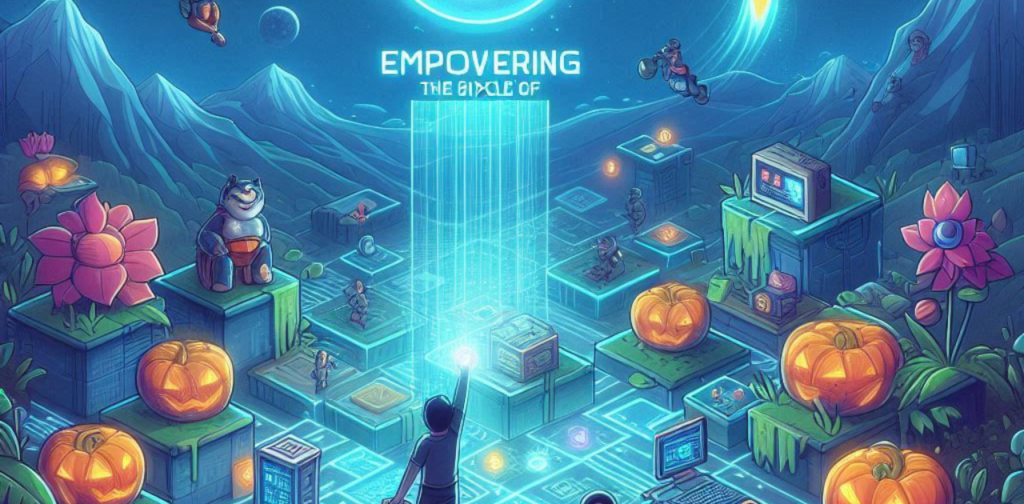Empowering the Pixel: How blockchain is reshaping the gaming industry
The gaming industry is a huge one, constantly evolving with new technologies. Blockchain, the power behind cryptocurrencies, is making its mark on this dynamic world, promising a future of ownership, transparency, and revolutionary gameplay experiences.
Introduction
At its core, blockchain is a distributed ledger system that securely stores data across a network of computers. It creates an immutable record of transactions, making it tamper-proof and transparent. These characteristics are particularly attractive to the gaming industry, where virtual items and in-game assets hold significant value to players.
The rise of play-to-earn and game ownership

The impact of blockchain on gaming can be seen in several areas:
- Play-to-earn (P2E): Blockchain games allow players to earn cryptocurrencies or tokens through gameplay. These tokens can have real-world value and can also be used to purchase in-game items or trade on marketplaces.
- Non-Fungible Tokens (NFTs): NFTs are unique digital tokens that represent ownership of in-game items like avatars, weapons, or virtual land. Players can actually own these assets, and with blockchain, they can be traded or sold to other players.
- Decentralized Games (DApps): DApps are games built on blockchain platforms, giving players more control over the game’s development and economy.
Transforming In-Game Economies
Blockchain offers significant advantages over traditional gaming models:
- Ownership: Players have actual ownership of their digital assets, which promotes investment and a sense of value.
- Transparency: Transactions and item ownership are transparent and immutable, reducing fraud and disputes.
- Interoperability: In theory, NFTs and digital items can be used across different blockchain-based games, creating a more integrated gaming experience.
The Future of Blockchain Gaming
| Feature | Benefits |
|---|---|
| Player Ownership | Empowers players and creates a sense of value |
| Transparency | Reduces fraud and increases trust |
| Interoperability | Opens doors to new gaming experiences |
| Democratization | Allows for community-driven game development |
Challenges and Considerations

Despite its potential, blockchain gaming faces some challenges:
- Scalability: Blockchain platforms need to scale to handle the high volume of transactions generated by popular games.
- Regulation: Clear regulation is needed to address issues such as token valuation and fraud prevention.
- Integration: Integrating blockchain technology into existing gaming ecosystems requires careful planning and development.
Conclusion
Blockchain technology is still in the early stages of adoption within the gaming industry. However, its potential to empower players, create new economic models, and foster a more transparent and secure gaming environment is undeniable. As the technology matures and integrates with existing gaming infrastructure, we can expect a wave of innovative games that redefine player ownership and engagement.
Frequently Asked Questions
- Will blockchain games replace traditional games?
Not necessarily. Blockchain offers a new layer of possibilities for gaming, but traditional models will likely continue to exist.
- Can I make money playing blockchain games?
While some games offer opportunities to earn crypto, this should not be the primary motivation for playing. Focus on enjoying the gameplay.
- Is blockchain gaming safe?
Like any online activity, there are risks involved. Research the games thoroughly and only invest as much as you can afford to lose.

